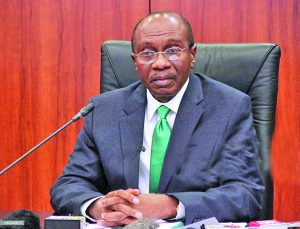Godwin Emefiele, the governor, Central Bank of Nigeria, has said that the federal government has adopted the unconventional monetary policy to grow and diversify the nation’s economy.
Delivering a lecture on Friday at Edo University Iyamho, titled “The role of economic monitoring policy towards development of Nigeria”, Emefiele said the federal government has to think outside the box and come up with the unconventional monetary policies as conventional tools were unable to address constraint to economic growth.
He noted that the policy requires encouraging local production by imposing high tariff and levies on imported goods so that local production, especially farming can grow.
“That is why we closed our borders so that goods can’t be smuggled into the country to grow our industry and farmers can continue to produce . People criticised us for closing the borders but that is what we need to do to grow and diversify the economy from oil and encourage agriculture,” he said.
According to him, “Cameroun encourages their people to imports goods by reducing tariff on imported goods from 10 percent to zero percent and Benin Republic reduced tariff from 35 percent to seven percent and these goods are all coming to Nigeria and our local producers cannot sell their produce,.
“The favourable outcomes and strengthening outlook of the Nigerian economy is traceable to the time of adoption of unconventional monetary policy tools. The CBN has been able to reduce inflation, build our forex reserves and maintain forex market stability and foster real growth”.
Emefiele said the Anchor borrower programme has helped to bolster agricultural production by removing obstacles faced by small holders farmers. He noted CBN as manager of economic policy in the country have the responsibility of protecting the local production, and creating employment, especially in the rural area.
On his part, Governor Godwin Obaseki, said “Edo state has so far enjoyed N5 billion in terms of Commercial Agric Projects , and today we have over 5,000 hectares of cultivated farm land in Sube, Uwarake and Agenegbode,Ilushi among others areas.” Related








